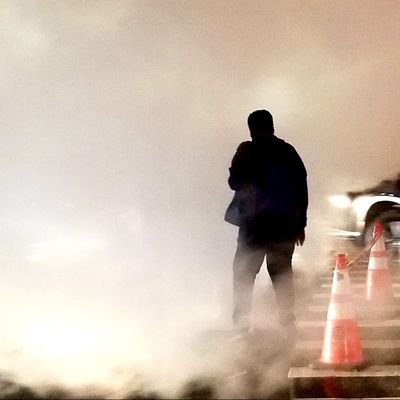
L. Olamina@absurdistwords
May 14, 2019
17 tweets
The story of how Kumbaya went from being a Black spiritual to a punchline is fascinating and illustrative of the mechanics of whiteness.

L. Olamina@absurdistwords
May 14 19
View on Twitter
Now you understand why Black people raise an eyebrow at your peace-seeking calls for kumbaya.
(50 points to any white person who knows what kumbaya means besides a corny, naive call for peace?)
If you don't know. Think about that for a second.
In popular culture, 'Kumbaya" is a derisive term.
When we talk about people having a "kumbaya" moment, the implication is that they had a meaningless, naively performative moment of feckless togetherness.
In the same way that "woke" has come to symbolize self-indulgent, performative pseudo-intellectualism, so did kumbaya after the civil rights era.
And for the same reason. White appropriation and misuse.
To begin with, Kumbaya isn't a single word in an african language.
It is three words in the Gullah dialect... Kum bay yah.
Separated it's easier to see those words as pronunciations of "Come By Here (he-yah)"
These words were part of an oral musical tradition of slave spirituals.
The refrain "Come by here, Lord... come by here" is a call of fervent and desperate prayer for respite and aid.
The most common theme in slave spirituals were hopeful prayers that someone would rescue them from bondage, and failing that, looking forward to the release of death.
"Kum ba ya, lawd" was a cry for help. A plea to be saved from the cruelty of whiteness.
To be saved from unending servitude.
To have someone with power care for their pain.
So what happened?
Well first a white man came along and threw up a copyright for the song.
Because of course he did.
He said he'd "Heard the words, Come by Here" in some white church prayers and set it to music.
With a straight face and everything.
By the way. The guy who said he wrote the song?
From Portland, Oregon.
So you know. Portland.
Anyway. When white folks had to contend with why there were all these Black people singing a song called "Kumbaya" that seemed a lot the same, their response was...
"Some missionaries took this song to Angola and they must have translated it into their african dialect"
Follow me here?
Asked about why Black people were singing a "white" song, the answer was that they must have gotten it from white missionaries and then brought it BACK to America in a different language.
All that to avoid admitting to plagiarism.
Thing was. Angolans were like "Hey. Fuck y'all. We ain't never even heard of that song and Kumbaya doesn't MEAN anything in our language"
So there was that.
So nevertheless, the song got popular in the white American Folk Music scene and became a white anthem for love and peace.
The name of the song, Kumbaya became synonymous with popular establishmentarian derision of hippies and stereotyping as out of touch with the cold, harsh realities of life.
And so Kumbaya went from meaning "Please come and save us, bring us support and aid and joy in our time of distress and need"
to meaning "Everybody's happy, we're all together, peace will win"
Here's a NYT article on the history of the song.
Really cool? You can hear the first known recording of it in the 1920s as sung by Gullah Geechee man H. Wylie

L. Olamina
@absurdistwords
I try to facilitate discussion on those sensitive subjects that divide us.
If you find my words valuable, please contribute to my Paypal below!
Missing some tweets in this thread? Or failed to load images or videos? You can try to .